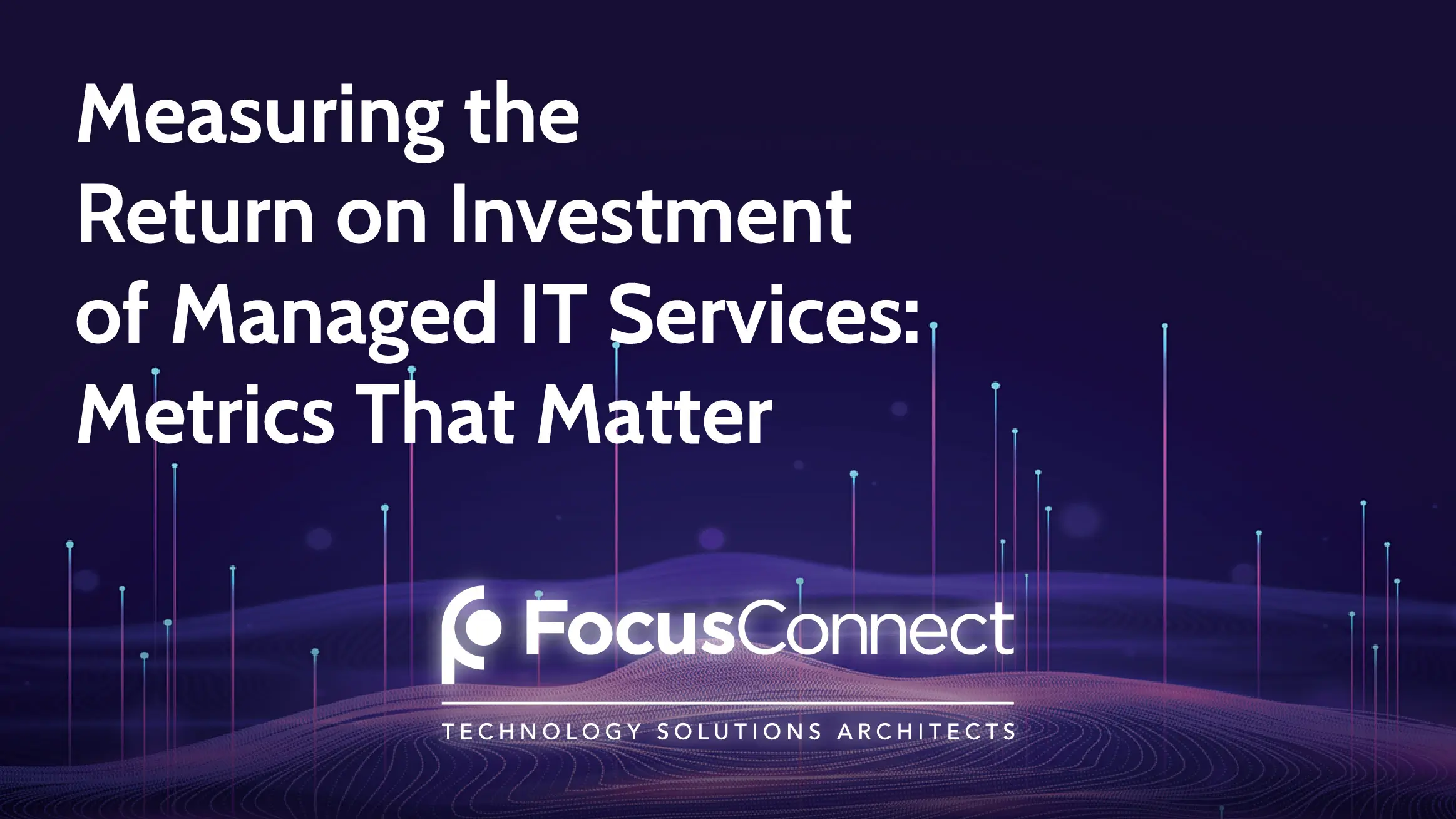Increasingly, businesses are turning to managed IT services providers to streamline operations, enhance security, and reduce costs. But how do you measure the true value of these services? Understanding the Return on Investment (ROI) of managed IT support is essential for making informed decisions and maximizing business outcomes.
Here are the key metrics that matter when evaluating the ROI of managed IT services, especially for small and mid-sized businesses.
What Are Managed IT Services?
Managed IT services refer to outsourcing your company’s IT operations to a third-party provider. These services typically include:
- Remote IT support solutions – allowing businesses to receive technical assistance without the need for on-site visits. Using secure remote access tools, IT professionals can troubleshoot issues, install updates, and manage systems from anywhere. This approach reduces downtime, improves response times, and is especially beneficial for distributed teams and small businesses seeking cost-effective support.
- IT infrastructure management – involves overseeing and maintaining all the hardware, software, networks, and services that support an organization’s IT environment. This includes servers, data centers, cloud platforms, and network devices. Effective infrastructure management ensures system reliability, scalability, and performance, while minimizing risks and optimizing resource usage.
- 24/7 IT helpdesk services – providing round-the-clock technical support to employees and customers. These services handle everything from password resets and software troubleshooting to hardware issues and network connectivity problems. A continuous helpdesk ensures that businesses maintain productivity and resolve issues quickly, regardless of time zones or working hours.
- Network monitoring and management – refers to the continuous oversight of an organization’s network to ensure optimal performance and security. It includes tracking bandwidth usage, detecting anomalies, managing devices, and responding to outages or threats. Proactive network management helps prevent downtime, improves efficiency, and supports business continuity.
- Managed cybersecurity services – outsourcing the protection of digital assets to a specialized provider. These services include threat detection, firewall management, endpoint protection, and compliance support. By leveraging expert knowledge and advanced tools, businesses can defend against cyberattacks, reduce vulnerabilities, and meet regulatory requirements without building an in-house security team.
- Cloud backup and disaster recovery – safeguards business data by storing copies in secure, off-site cloud environments. In the event of data loss, system failure, or cyberattack, these services enable rapid restoration of operations. They are essential for minimizing downtime, protecting sensitive information, and ensuring business resilience.
By partnering with a managed IT services provider, businesses gain access to expert support, advanced technologies, and scalable solutions without the overhead of maintaining an internal IT team.
Why ROI Matters in IT Outsourcing
Measuring ROI helps businesses determine whether their investment in IT services is delivering tangible benefits. It’s not just about cost savings—it’s about performance, security, scalability, and strategic growth.
Key Metrics That Matter
1. Cost Savings
- Reduce IT costs with Managed Service Providers (MSPs) by eliminating the need for full-time staff, hardware upgrades, and emergency repairs.
- Compare monthly service fees to historical IT spending to assess savings.
2. System Uptime and Reliability
- Track improvements in network monitoring and management.
- Measure downtime incidents before and after MSP engagement.
3. Security Improvements
- Evaluate the impact of managed cybersecurity services, including:
- Threat detection and response services
- Endpoint detection and response (EDR)
- Firewall management services
- Monitor reductions in security breaches, phishing attempts, and ransomware incidents.
4. Compliance and Risk Management
- Assess how MSPs support HIPAA-compliant IT services, PCI DSS managed security, and NIST cybersecurity framework support.
- Measure audit success rates and risk mitigation improvements.
5. Scalability and Flexibility
- Track how MSPs enable scalable IT solutions for growing businesses.
- Measure time-to-deploy for new users, systems, or locations.
6. Employee Productivity
- Analyze helpdesk response times and resolution rates.
- Measure improvements in employee satisfaction and efficiency due to reduced tech issues.
7. Business Continuity
- Evaluate the effectiveness of cloud backup and disaster recovery solutions.
- Measure recovery time objectives (RTO) and recovery point objectives (RPO).
Strategic Value of IT Consulting
Beyond operational metrics, consider the strategic benefits of IT strategy consulting services:
- Long-term technology planning
- Digital transformation support
- Competitive advantage through innovation
Real-World Example
A financial services firm reduced IT costs by 30% and improved system uptime by 99.9% after switching to a managed IT services provider. With 24/7 IT helpdesk services and remote monitoring and management, they eliminated recurring outages and improved client satisfaction.
FocusConnect can help demonstrate your potential ROI by outsourcing some or all of your IT functions – reach out to us for more details.
FocusConnect is a Denver-based managed IT services provider committed to collaboration, innovation, and leadership. We specialize in delivering secure, scalable solutions that align with today’s evolving industry standards—never yesterday’s. Our expert team empowers organizations to enhance cybersecurity, streamline operations, and reduce costs through tailored strategies designed to grow with your business. Partner with FocusConnect to future-proof your IT infrastructure and drive sustainable success.


